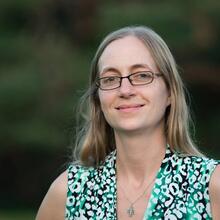My children’s parochial school is about as low-tech as it is presently possible for an institution to be. That has actually been a good thing in an era of “distance learning.” It was obvious from the start of the coronavirus pandemic that the students could not be expected to attend a battery of Zoom classes or watch online lectures for hours. Some families probably have more students than internet devices in their homes, so our school kept things simple. Materials have been provided, but deadlines have been few and lenient. Teachers have been available but not nagging. Parents have been trusted to make decisions about what their children most need.
The new routine is stressful for me, but my kids seem fine. They miss their friends, but they are not despondent or wracked with anxiety. I am especially grateful at this time to have five sons who can keep one another company as they fish, build models and play backyard baseball. Things could be so much worse. For many, they are.
What we miss are the people. There is an energy, optimism and sense of purpose to our school community that seems to keep life moving forward.
Having said that, I will be thrilled when the school reopens. It’s not that the boys’ education is running aground. We are keeping up, more or less, with the curricula. What we miss are the people. There is an energy, optimism and sense of purpose to our school community that seems to keep life moving forward. In the mid-afternoon, I glance at the clock and feel sad that it is not necessary to drive over and pick up the boys. The school is our village, and we are incomplete without it.
Distance learning is kind of a drag for me, especially because it forces me to push important tasks to evenings and weekends, when I would like to be enjoying my kids. Our time together goes to grammar and spelling instead of hikes and board games. That’s a bad trade, but at least I can teach them to diagram sentences. I cannot single-handedly create a Christian community where my sons receive personal attention from many different adults, each with their own strengths and insights. I cannot supply dozens of playmates from a range of different backgrounds. I can tell them that they are members of the body of Christ, but I can’t help them to experience this in the way that they do in Catholic school.
I can tell them that they are members of the body of Christ, but I can’t help them to experience this in the way that they do in Catholic school.
Catholic schools across the nation have been closing for some years now, for reasons that are too easy to understand. They can be expensive, and families can’t always justify the cost. Public schools and homeschooling present more affordable options, which may enable parents to save something for college or for summer camp, music lessons or an art class. Parishes, too, must consider their priorities, with some concluding that they do not have enough children left to justify the cost of a school.
Financial realities are what they are, but we must understand what we are losing if we allow the church to ease quietly out of education. One way or another, most Catholic kids will probably still learn their ABCs. But they may not learn what it means to be a valued, contributing member of a Christian community.
Catholic schools can pay rich dividends when young people are leaving the church in large numbers. These schools support families and preserve our Catholic tradition while also giving us reason to look forward with hope. When we invest in our schools, we invest in the future of our church.
Sometimes school closures are inevitable, but that is not always the case. Just over a decade ago, our own school was wrestling with dwindling enrollment and an uncertain future. The transformation of St. Agnes is something of a Cinderella story, involving a visionary pastor, generous local philanthropists and a robust alliance with the Institute for Catholic Liberal Education. Our school was undeniably blessed, and others may find it difficult to spy such a bright future for themselves, especially when so many people are struggling to meet basic needs. It may be, though, that now is precisely the time to protect our educational institutions as the best means of preparing our young people for the daunting challenges ahead.
The coronavirus has thrown both schools and parents into a new situation. Some of the challenges are temporary. Others will persist. As we think about reopening, rebuilding and perhaps reforming our post-lockdown world, we should try to remember the lessons the pandemic has taught us about what we can do as parents and what we cannot. Home is where the heart is, but sometimes it takes a Catholic school to raise Catholic child.










